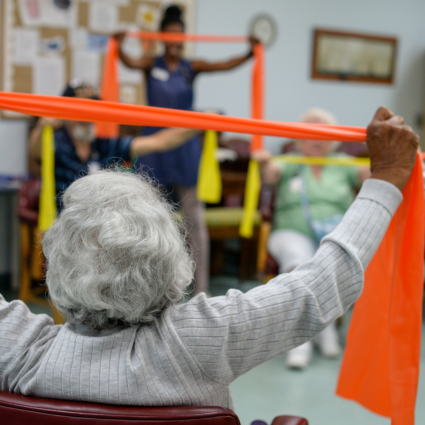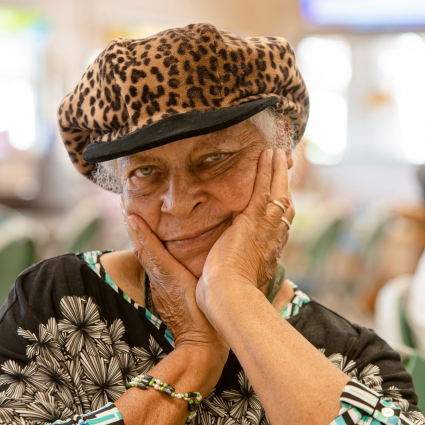Spring is the perfect time to revitalize the mind and spirit. For older adults with dementia, small, engaging activities – like storytelling, gardening, or listening to music – can stimulate memory and enhance well-being. Discover simple ways to bring joy, creativity, and connection into daily caregiving.
adult day care
Marylanders know that summertime means goin’ down the ocean for some fun in the sun. For families caring for someone living with dementia, beach vacations can still be joyful and memorable experiences with a bit of planning and preparation.
Living with Alzheimer’s or other forms of dementia presents unique challenges, not only for the individuals directly affected but also for their caregivers and loved ones. Among these challenges, perhaps one of the most crucial is communication.
Engaging in physical activities isn’t just good for your body – it’s great for your mental health too! Research shows that even short burst of exercise can lift your mood and reduce stress.
According to the National Council on Aging, regular activity, not just exercise can positively impact our mental, emotional and physical wellbeing. The important thing is finding something that is comfortable and sustainable for you.
Technology plays a critical role in facilitating effective communication and access to essential services for the aging community, particularly outside their homes.
As the population ages, the need for specialized care services for seniors becomes increasingly vital. Among these services, adult day care stands out as a valuable resource for both elderly individuals and their caregivers.
Relationships change over time, and when it comes to parents and their children, this feeling of “role reversal” is quite common. Adult children may find themselves “parenting” their elderly parent. This transition is challenging for both parties and may leave everyone involved feeling vulnerable and confused.
We all know the saying, “April showers bring May flowers.” These rain-filled days often mean being indoors and finding ways to stay active at home. From reading and listening to music, to sharing in household tasks, there are so many activities that you and a family member with dementia can enjoy together.
Montessori is an educational philosophy that can be applied to any age group. It focuses on individual development and meeting the person where they are. In older adults, the Montessori approach is primarily used to foster independence and a sense of self-worth.











